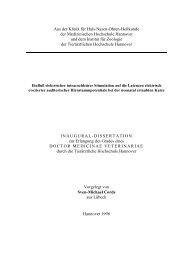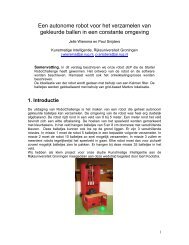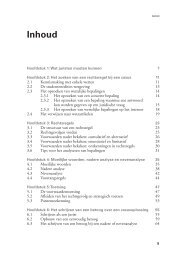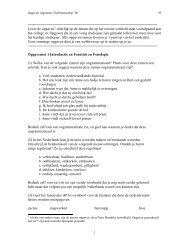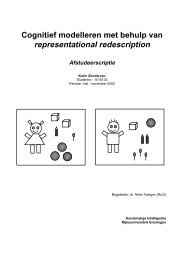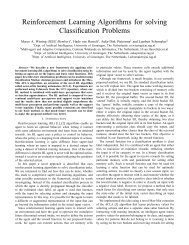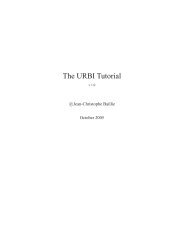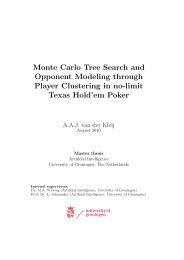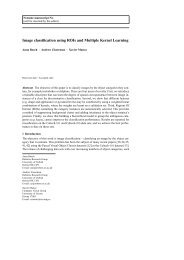Presuppositions in Spoken Discourse
Presuppositions in Spoken Discourse
Presuppositions in Spoken Discourse
Create successful ePaper yourself
Turn your PDF publications into a flip-book with our unique Google optimized e-Paper software.
He has supported you quite strongly (c) and we had<br />
(UNTIL LINE 1015, i.e. 895 l<strong>in</strong>es)<br />
Anaphors and Bound <strong>Presuppositions</strong><br />
Speaker A: You could <strong>in</strong>deed but I should cont<strong>in</strong>ue also to give Professor Pitt‘s<br />
s<strong>in</strong>ce I know that<br />
Speaker B: Know that he is enthusiastic<br />
Speaker A: Yes, quite. He supported you very strongly. (d)<br />
Hav<strong>in</strong>g supported someone strongly is not a synonym to be<strong>in</strong>g enthusiastic but they both do<br />
express what are at least compatible positive attitudes. This makes their mean<strong>in</strong>g<br />
similar enough consider the sentiment expressed by the former as a potential<br />
antecedent for the latter. What evidence do we have that Speaker A is b<strong>in</strong>d<strong>in</strong>g the<br />
presupposed <strong>in</strong>formation with the previous statement? Actually, I th<strong>in</strong>k we have<br />
quite strong evidence of this because Speaker A <strong>in</strong> l<strong>in</strong>e (d) repeats the utterance<br />
from which the antecedent material is derived almost word for word!<br />
Similar effects have been shown <strong>in</strong> cases of long-distance relationships<br />
between anaphors and their antecedents, discussed <strong>in</strong> Fox (1987) and Walker<br />
(1996), where often the same str<strong>in</strong>gs of words from the earlier context where an<br />
antecedent was last used are repeated by discourse participants when another<br />
anaphoric reference is made to the referent. Fox (1987) gave several examples of<br />
this <strong>in</strong> her book. For example the follow<strong>in</strong>g (p.53-54)<br />
(23) Long-distance anaphor with lexical repetition, taken from Fox (1987, p. 53-54)<br />
Speaker C: I heard Little was mak<strong>in</strong>g frames and send<strong>in</strong>g them to California.<br />
[2 pages of <strong>in</strong>terven<strong>in</strong>g talk]<br />
Speaker G: That’s all – he don’t have any kids, him and his wife never had any kids<br />
and…<br />
Speaker C: (clears throat)<br />
Speaker G: (Whatta) they got you know…<br />
0.5<br />
Speaker C: Well…<br />
Speaker G: Well I guess –<br />
0.7<br />
Speaker C: T, nah, he helped<br />
Speaker G: He’s got he’s got eight units that he rents out and<br />
Speaker C: He helped uh, Merkie build his T bucket up, I saw Merkie’s is un is a<br />
darn nice look<strong>in</strong>g little bucket.<br />
1.0<br />
Speaker C: En then I, ex I heard det- you know he built a couple of them up and he<br />
used to build frames for guys. And then he uh see sent a couple of them to<br />
California.<br />
Fox considers the case <strong>in</strong> po<strong>in</strong>t to be a return pop, for the <strong>in</strong>terpretation of the<br />
anaphoric expression he. Return pops are the re<strong>in</strong>troduction of a discourse topic<br />
87



